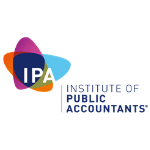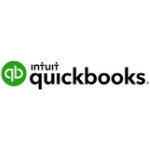Keeping your data safe as a remote worker
We’ve all been doing a lot more remote working in recent times. But have you thought about the security implications of using your device on a public network? #internetsecurity #cybersecurity
Using public WiFi in cafes, hotels and coffee shops is something we all do. It’s convenient and gives you the benefits of working online wherever you happen to be. But are you aware of the data security issues of working from a public network?
In an age where remote and hybrid working are now the norm for so many employees and self-employed people, it’s important to know the key ways to keep your data safe.
Secure ways to work from a public network
Remote working is a flexible approach to work that’s increased in popularity hugely over the past few years. A recent study from Buffer found that 97% of people would like to continue working remotely, at least some of the time, for the rest of their career.
Working remotely is here to stay, it would seem. But what can you do to make sure you’re applying the best possible security protocols? And what are the key dangers to look out for?
We’ve highlighted the important elements of cyber safety to be aware of:
- Unencrypted public networks and their flaws – a public network isn’t a safe environment when working. When you use your home network, only you and your family have access to the WiFi. If you log into a public network, literally anyone can join the network – and this can lead to all kinds of security issues and concerns.
- Malware and other suspicious activity – hackers and those with malicious intent will see a public network as a potential backdoor to your data. Malware (malicious software), Trojan horses and other hostile programmes can be easily uploaded to your device, allowing hackers to access your programmes, hard drive and data.
- Using a personal VPN to access the internet – if you’re using a public network to work, the chances are that you have access to confidential information and customer data via your device. To protect your device, it’s important to use a VPN (virtual private network). This creates a secure network for you, so you can safely share and access your important data, with fewer worries about hackers and malware etc.
- Having proper security software on your device – it’s a good idea to also have cyber security software installed on your computer or smart device. Providers like Norton, McAfee and Kaspersky all offer complete internet security suites that include firewalls, regular scans of your drive and other tools to keep your data safe and sound.
- Keeping up to date with the latest threats – no security system is 100% safe. But you can do a lot to improve your internet security by being aware of the current threats. Keep an eye out for news stories about cyber breaches and read the updates and social posts from your internet security provider. The more you’re in the loop about present dangers, the more you can do to update your security arrangements and keep your devices safe.
Start improving your internet security
We’ve all enjoyed the additional flexibility and time-saving benefits of working from somewhere other than the office. But as remote working becomes a standard working practice, it’s vital to improve your internet security and be more aware of the potential threats to your data. Get in touch if you need more help.















